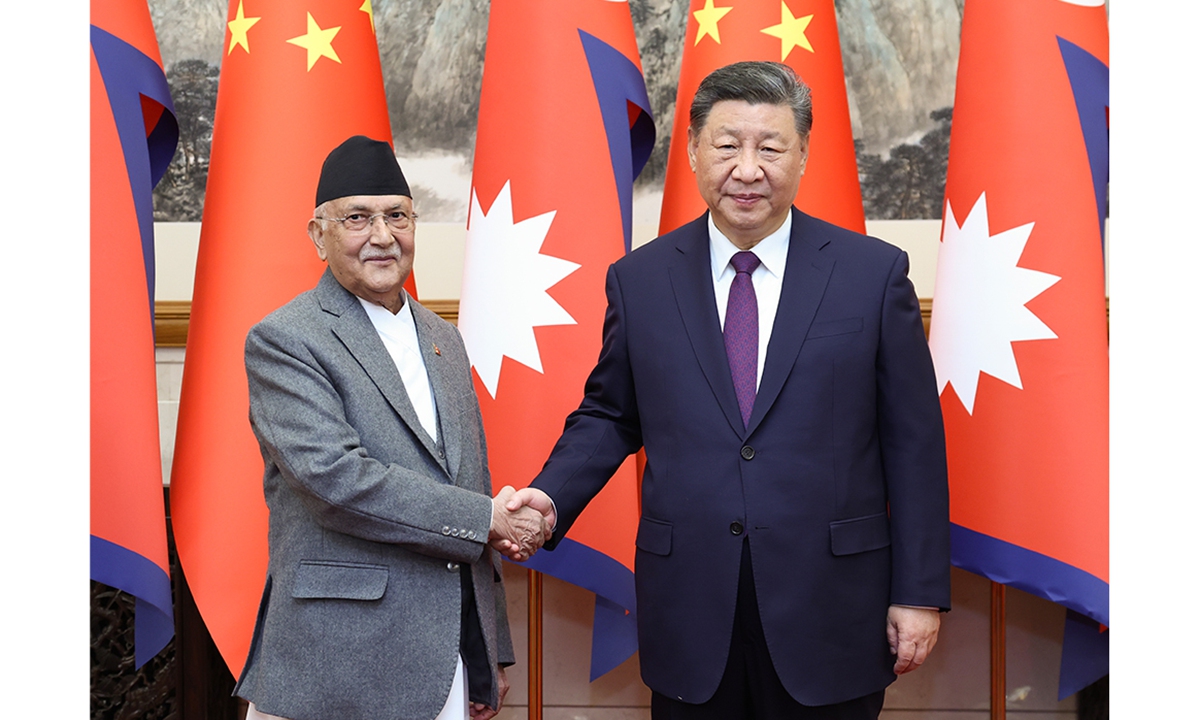Chasing the 'Northern Sun': Oli's Visit to China and Buffalo Meat Exports

Chasing the ‘Northern Sun’: Oli’s Visit to China
Scientifically speaking, the sun never rises from the north in Nepal. Satellite dishes and television antennas are always oriented southwards. However, Nepal’s political "antenna" occasionally has to turn north, as exemplified by Prime Minister KP Sharma Oli’s recent visit to China. Without an invitation from India, Oli embarked on this historic northern journey with hopes of achieving a groundbreaking leap forward. Whether this visit strengthens Nepal-China relations or leads to further complications remains an open question.
Limited Achievements and China’s ‘Generosity’
During Oli’s visit, China announced a grant of NPR 9 billion and signed eight agreements. These included the Tokha–Chahare Tunnel Road, buffalo meat exports, and cooperation in communication technology. China also pledged its commitment to supporting Nepal’s development. However, these achievements appear to be more superficial than substantial.
Is NPR 9 billion in aid truly a significant gift for Nepal? Especially when China continues to tighten its grip on Nepal’s strategic resources. Projects like the Pokhara International Airport, funded by Chinese loans, have worsened Nepal’s financial stability. By focusing on aid, Nepal missed a critical opportunity to address more significant issues such as the Belt and Road Initiative (BRI).
Silence on BRI and Strategic Failures
The absence of any discussions on the Belt and Road Initiative (BRI) during the visit is worrisome. Under BRI, China has a history of trapping nations in a "debt trap" under the guise of investment. While Nepal has shown caution in accepting loans, this has reportedly dissatisfied China. Key projects under BRI, such as the Kathmandu-Hetauda Ropeway and cross-border transmission lines, were again excluded from agreements. This oversight represents a serious strategic failure for Nepal.
Border Disputes and Trade Deficit
Another sensitive aspect of Nepal-China relations is the issue of border encroachment. Disputes over Chinese encroachments in areas such as Humla remain unresolved. Yet, Oli’s visit made no tangible progress in addressing these concerns.
Similarly, the trade deficit between Nepal and China is staggering. Nepal’s imports from China far exceed its exports, undermining Nepal’s goal of self-reliance. The agreement on buffalo meat exports may help mitigate this deficit, but it is far from a sustainable solution.
Border Blockades and Chinese Monopoly
Nepali traders continue to face challenges due to blockades at key border points, such as Tatopani and Rasuwagadhi. These restrictions weaken Nepal’s trade independence. Additionally, Chinese companies are monopolizing major infrastructure projects in Nepal, exacerbating issues like lack of transparency and cost overruns.
Connectivity and Symbolic Agreements
During the visit, agreements were signed on connectivity, infrastructure, and science/technology. However, projects like the Tokha–Chahare Tunnel Road, which has been stagnant for five years, underscore the gap between promises and implementation. Until these agreements materialize, Oli’s visit risks being seen as largely symbolic.
The Need for Improved Nepal-China Relations
Nepal must now reconsider its approach to relations with China. Issues such as border security, trade deficit, and economic dependence require strategic attention. Without clear diplomatic priorities, Nepal risks having its interests overshadowed by China’s.
Nepal should adopt policies to avoid falling into a "debt trap" and focus on ensuring equitable trade. Clear and firm agreements on major initiatives like BRI are essential for safeguarding Nepal’s long-term interests.
The Irony of the Visit
Despite the fanfare surrounding Oli’s visit, the outcomes were underwhelming. The NPR 9 billion grant, when compared to China’s aid to other nations, is negligible. Meanwhile, China continues to expand its control over Nepal’s resources.
Instead of resolving existing issues, Oli’s visit appears to have entrenched them further. The "cool northern sun" may have brought no warmth to Nepal, only raising concerns about its sovereignty and independence.
Conclusion
Oli’s visit failed to make significant contributions toward balancing Nepal-China relations. For Nepal to ensure a stable and mutually beneficial partnership with China, it must adopt clear diplomatic and economic strategies moving forward. Only then can Nepal safeguard its sovereignty and pursue long-term national interests.




![From Kathmandu to the World: How Excel Students Are Winning Big [Admission Open]](https://nepalaaja.com/img/70194/medium/excel-college-info-eng-nep-2342.jpg)
